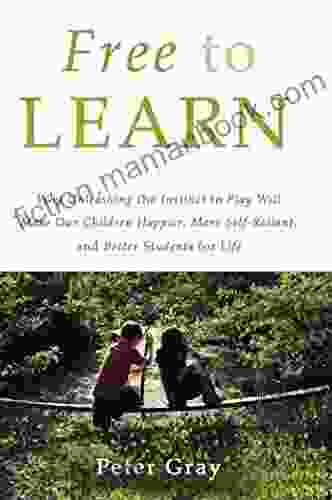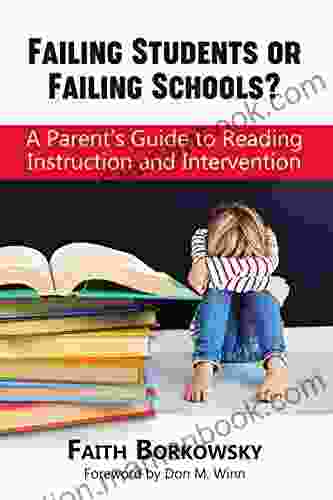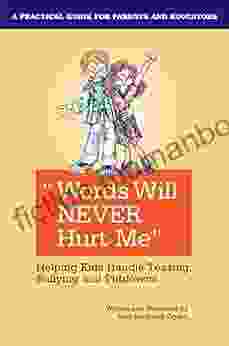Helping Kids Handle Teasing, Bullying, and Putdowns: A Comprehensive Guide for Parents and Educators

Teasing, bullying, and putdowns are unfortunately common experiences for many children. While they may seem like harmless jokes or minor annoyances, they can have a significant impact on a child's emotional well-being, academic performance, and overall development.
4.4 out of 5
| Language | : | English |
| File size | : | 4033 KB |
| Text-to-Speech | : | Enabled |
| Screen Reader | : | Supported |
| Enhanced typesetting | : | Enabled |
| Word Wise | : | Enabled |
| Print length | : | 160 pages |
| Lending | : | Enabled |
As parents and educators, it is crucial to understand the different types of bullying, recognize the signs that a child may be experiencing it, and equip them with the coping mechanisms and support systems they need to handle it effectively. This guide provides a comprehensive overview of teasing, bullying, and putdowns, along with practical strategies and resources to help children thrive in the face of adversity.
Types of Teasing, Bullying, and Putdowns
Teasing, bullying, and putdowns can take many forms, both online and offline. Some of the most common types include:
- Physical bullying: This involves any physical contact that is intended to cause harm or discomfort, such as hitting, kicking, shoving, or spitting.
- Verbal bullying: This involves using words to hurt or humiliate someone, such as name-calling, insults, or threats.
- Social bullying: This involves excluding someone from social groups or activities, spreading rumors, or damaging their reputation.
- Cyberbullying: This involves using technology to harass or intimidate someone, such as sending hurtful or threatening messages, posting embarrassing photos or videos, or creating fake accounts to spread rumors.
- Putdowns: These are seemingly harmless comments or jokes that are intended to make someone feel inferior or unworthy.
The Impact of Teasing, Bullying, and Putdowns
Teasing, bullying, and putdowns can have a profound impact on children's physical, emotional, and psychological well-being. Some of the potential consequences include:
- Physical health problems: Children who are bullied are more likely to experience headaches, stomachaches, sleep problems, and other physical health issues.
- Mental health problems: Children who are bullied are more likely to develop anxiety, depression, and low self-esteem.
- Academic problems: Children who are bullied are more likely to have difficulty concentrating in school, skip classes, and perform poorly on tests.
- Social problems: Children who are bullied are more likely to withdraw from social activities, avoid peer interactions, and have difficulty making friends.
- Increased risk of future victimization: Children who are bullied are more likely to be bullied again in the future, as well as to engage in bullying behavior themselves.
Recognizing the Signs of Bullying
It is important to be able to recognize the signs that a child may be experiencing teasing, bullying, or putdowns. Some of the common signs include:
- Physical signs: Unexplained bruises, cuts, or other injuries; torn or damaged clothing; missing or stolen belongings.
- Emotional signs: Sadness, anxiety, depression, anger, withdrawal from social activities, changes in eating or sleeping habits.
- Behavioral signs: Avoiding school or activities, skipping classes, avoiding certain places or people, becoming aggressive or withdrawn.
- Online signs: Negative or hurtful messages on social media, blocked or deleted accounts, hacking or identity theft.
- Indirect signs: Friends or family members expressing concern, rumors or gossip about the child, changes in the child's mood or behavior after spending time with a particular person or group.
Helping Kids Handle Teasing, Bullying, and Putdowns
If you suspect that a child is experiencing teasing, bullying, or putdowns, there are a number of things you can do to help them.
1. Talk to the Child
The first step is to talk to the child about what is happening. Let them know that you are aware of what is going on and that you are there to support them. Listen to their story and try to understand their perspective without interrupting or judging.
2. Validate Their Feelings
It is important to validate the child's feelings. Let them know that it is okay to feel hurt, angry, or scared. Reassure them that they are not alone and that you believe them.
3. Help Them Identify the Different Types of Bullying
Go over the different types of bullying with the child so that they can better understand what they are experiencing. Explain that not all teasing or putdowns are meant to be hurtful, but that it is important to be able to recognize when someone is crossing the line.
4. Develop Coping Mechanisms
Work with the child to develop coping mechanisms that they can use when they are being teased or bullied. These might include:
- Ignoring the bully and walking away
- Standing up for themselves in a respectful and assertive manner
- Talking to a trusted adult for support
- Using humor to defuse the situation
- Practicing self-care and positive self-talk
5. Provide Support
Let the child know that you are there for them and that they can talk to you about anything. Be supportive and understanding, and let them know that you are on their side.
6. Contact the School or Other Authorities
If the bullying is happening at school or online, you may need to contact the school or other authorities for help. They can investigate the situation and take appropriate disciplinary action to stop the bullying.
7. Seek Professional Help
If the bullying is severe or if the child is struggling to cope, you may need to seek professional help. A therapist or counselor can provide the child with additional support and guidance.
Resources for Kids
There are many resources available to help kids handle teasing, bullying, and putdowns. Here are a few:
- StopBullying.gov: A government website with information and resources on bullying prevention and response.
- National Bullying Prevention Center: A non-profit organization that provides resources and training on bullying prevention.
- Kids Help Phone: A free and confidential phone counseling service for kids and teens.
- Crisis Text Line: A free and confidential texting service that provides support to kids and teens in crisis.
How to Prevent Bullying
In addition to providing support for kids who are experiencing bullying, it is also important to work to prevent it from happening in the first place. Here are a few things that you can do:
- Create a positive school climate: Schools that have a positive climate are less likely to experience bullying. This means creating a school environment where all students feel safe, respected, and included.
- Teach empathy and respect: Children need to be taught empathy and respect for others. This can be done through lessons in school, at home, and in the community.
- Encourage peer support: Children need to know that they are not alone and that there are people who care about them. Encourage them to form peer support groups and to reach out to trusted adults for help.
- Be a role model: Children learn by watching the adults in their lives. Be a role model of kindness, respect, and
4.4 out of 5
| Language | : | English |
| File size | : | 4033 KB |
| Text-to-Speech | : | Enabled |
| Screen Reader | : | Supported |
| Enhanced typesetting | : | Enabled |
| Word Wise | : | Enabled |
| Print length | : | 160 pages |
| Lending | : | Enabled |
Do you want to contribute by writing guest posts on this blog?
Please contact us and send us a resume of previous articles that you have written.
 Top Book
Top Book Novel
Novel Fiction
Fiction Nonfiction
Nonfiction Literature
Literature Paperback
Paperback Hardcover
Hardcover E-book
E-book Audiobook
Audiobook Bestseller
Bestseller Classic
Classic Mystery
Mystery Thriller
Thriller Romance
Romance Fantasy
Fantasy Science Fiction
Science Fiction Biography
Biography Memoir
Memoir Autobiography
Autobiography Poetry
Poetry Drama
Drama Historical Fiction
Historical Fiction Self-help
Self-help Young Adult
Young Adult Childrens Books
Childrens Books Graphic Novel
Graphic Novel Anthology
Anthology Series
Series Encyclopedia
Encyclopedia Reference
Reference Guidebook
Guidebook Textbook
Textbook Workbook
Workbook Journal
Journal Diary
Diary Manuscript
Manuscript Folio
Folio Pulp Fiction
Pulp Fiction Short Stories
Short Stories Fairy Tales
Fairy Tales Fables
Fables Mythology
Mythology Philosophy
Philosophy Religion
Religion Spirituality
Spirituality Essays
Essays Critique
Critique Commentary
Commentary Glossary
Glossary Bibliography
Bibliography Index
Index Table of Contents
Table of Contents Preface
Preface Introduction
Introduction Foreword
Foreword Afterword
Afterword Appendices
Appendices Annotations
Annotations Footnotes
Footnotes Epilogue
Epilogue Prologue
Prologue Paul F Grendler
Paul F Grendler Kimberly Carrillo
Kimberly Carrillo Grace Nichols
Grace Nichols Henry William Herbert
Henry William Herbert Michael A Huggins
Michael A Huggins Carmen Beatty
Carmen Beatty Edmond Rostand
Edmond Rostand James Goldberg
James Goldberg Ryan Watkins
Ryan Watkins Charisse Allen
Charisse Allen Kathryn Le Veque
Kathryn Le Veque Steven Scott Nestle
Steven Scott Nestle Mrs Serena
Mrs Serena Loki Renard
Loki Renard Tom Burkhalter
Tom Burkhalter Celia Genishi
Celia Genishi S E Smith
S E Smith Hugh Morrison
Hugh Morrison Cookie St Claire
Cookie St Claire Craig Steven Wilder
Craig Steven Wilder
Light bulbAdvertise smarter! Our strategic ad space ensures maximum exposure. Reserve your spot today!
 Anthony WellsFollow ·14.6k
Anthony WellsFollow ·14.6k Steven HayesFollow ·4.1k
Steven HayesFollow ·4.1k F. Scott FitzgeraldFollow ·12.7k
F. Scott FitzgeraldFollow ·12.7k Branson CarterFollow ·3.6k
Branson CarterFollow ·3.6k Brody PowellFollow ·2.1k
Brody PowellFollow ·2.1k Jesus MitchellFollow ·7.1k
Jesus MitchellFollow ·7.1k Vladimir NabokovFollow ·8.2k
Vladimir NabokovFollow ·8.2k Ernest ClineFollow ·13.1k
Ernest ClineFollow ·13.1k

 Abe Mitchell
Abe MitchellWhy Unleashing the Instinct to Play Will Make Our...
Play is an essential part of childhood. It is...

 Rubén Darío
Rubén DaríoTheory in Health Promotion Research and Practice
Theory is essential...

 Howard Blair
Howard BlairFailing Students or Failing Schools: Uncovering the Root...
In the United States, the issue of failing...

 Ira Cox
Ira CoxPoetry From the Heart Chope: A Symphony of Soul and Verse
Embark on a literary...

 Easton Powell
Easton PowellThe Witch Hunt: Wicked Witches of Shadow Woods
In the cursed woods of...
4.4 out of 5
| Language | : | English |
| File size | : | 4033 KB |
| Text-to-Speech | : | Enabled |
| Screen Reader | : | Supported |
| Enhanced typesetting | : | Enabled |
| Word Wise | : | Enabled |
| Print length | : | 160 pages |
| Lending | : | Enabled |














